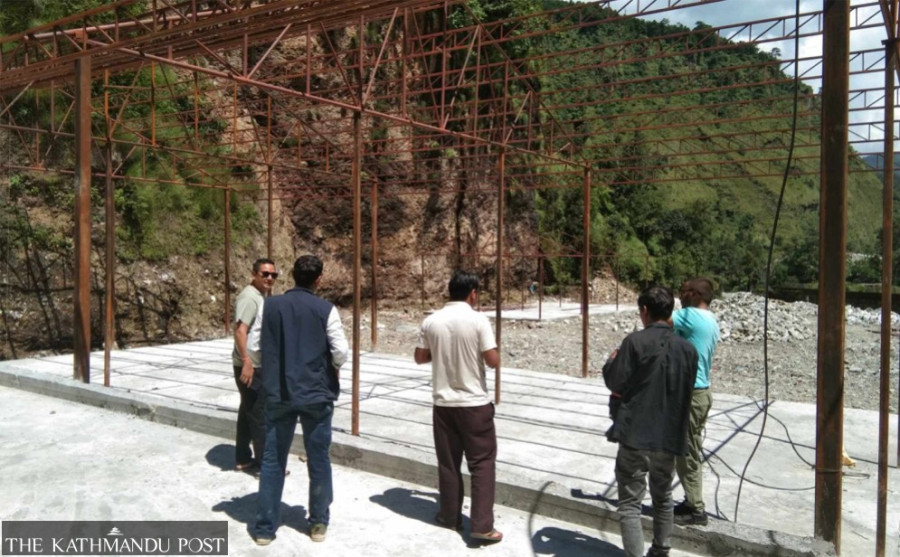Gandaki Province
Baglung launches 'zero waste' initiative
The site has been divided into three sections to manage organic, non-organic, and hazardous waste, including glass.
Prakash Baral
Baglung Municipality, which has been searching for the final solution to the garbage collection issue for a long, has launched a ‘zero waste’ initiative, aiming for the proper utilisation of all types of waste by collecting it in three categories- organic, non-organic, and hazardous waste.
The municipality had been disposing of its waste in Khudurke, located along the banks of the Kaligandaki and Kathekhola rivers for one and half decades. With the start of this campaign, the municipality has now buried the existing waste and cleared the dumping site.
The site has been divided into three sections to manage organic, non-organic, and hazardous waste, including glass, Mayor Basanta Kumar Shrestha said.
He informed that the municipality has allocated Rs10 million to implement the zero waste project in the current fiscal year.
The funds will initially be used to construct infrastructure for waste management. Organic waste will be processed into compost, while non-organic waste will be collected and sold, the mayor said.
The municipality plans to introduce Korean technology to incinerate medical and glass waste, aiming for a zero-waste solution.
“Each household will now be provided with three bins—for organic, non-organic, and glass waste,” said Shrestha. “Every day, three types of waste will be collected by separate vehicles for proper disposal.” In line with this, the municipality is preparing to colour-code the bins and vehicles – red, blue, and green – for easy identification.
Locals and travellers suffered from the stench caused by the roadside dump for quite a long. Now, with daily waste management in place, the site will be odour-free. To prevent foul smells, the municipality plans to pave the ground at the collection points and cover them with corrugated iron sheets.
According to Shrestha, Baglung Municipality dumped waste along the Kaligandaki riverbanks for a decade since 1997. The mound of waste at Khudurke has now been cleared. Organic and non-organic waste, previously dumped together, had filled 10 ropanis of land.
Organic waste will now be turned into compost manure, plastic waste will be recycled, and other non-recyclable waste, amounting to just 3%, will be incinerated.
The municipality has already signed a preliminary agreement with ‘ALK Eco’, a company under the South Korean Ministry of Environment. It has been reported that incinerating waste with this technology will consume only 20 to 30 units of electricity per month and will be smoke-free. The company will provide the incineration machines to the municipality with a three-year free service guarantee and will send technicians to Korea for training on machine operation.
Additionally, South Korean technicians will come to the site to provide hands-on training. According to company representatives, a machine capable of incinerating 1 tonne of plastic waste daily will cost Rs6 million, while a machine that can incinerate up to 3 tonnes of waste monthly will cost Rs11.7 million. The municipality also plans to turn the covered landfill into a green park by planting grass, which will eliminate any lingering odour, according to the municipality's chief administrative officer, Haridatta Kandel.




 14.12°C Kathmandu
14.12°C Kathmandu.jpg)















